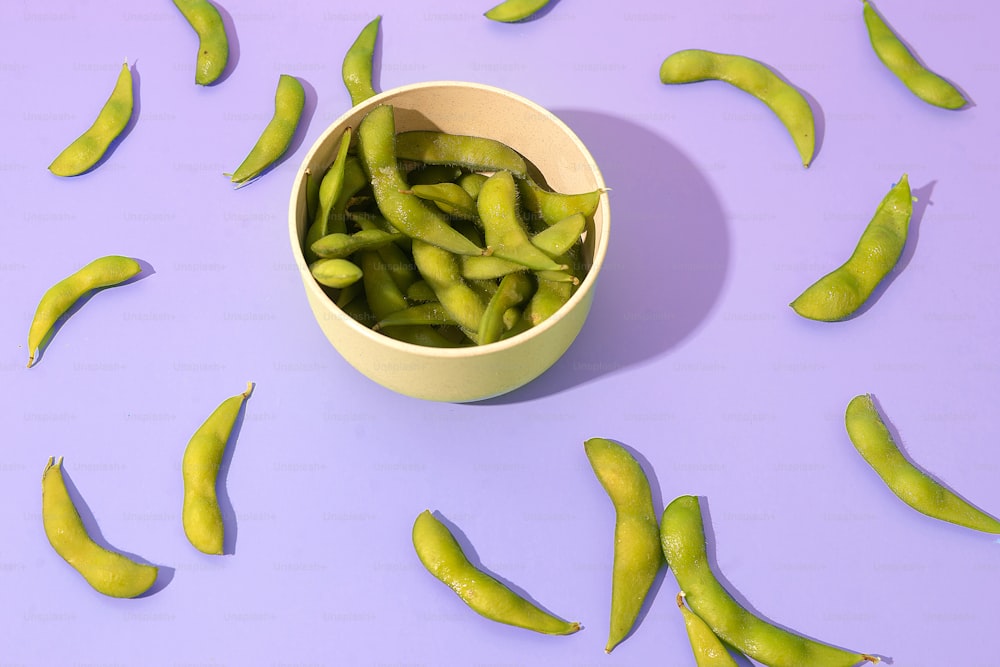Soy is an essential part of a sustainable diet that is important for the environment and your health. It has a substantial environmental impact and reduces the risk of several health problems. It has all the necessary elements, including protein and good fats, and uses fewer manufacturing resources than other foods. This makes it an excellent choice for agriculture that is sustainable.
Are you trying to reduce your carbon impact or seeking a plant-based protein source? Try some soy products; why not? You may enjoy a soy milk latte knowing you are helping protect the environment. This article examines the advantages of this sustainable and eco-friendly legume.
Sustainable Protein Resource
The eco-friendly soy is cultivated cheaply with practices like crop rotation. It is a renewable and sustainable crop that uses less water and energy than animal-based goods. Compared to grazing meadows for animals, soybeans require less space to grow. In addition, it uses less water to grow than animal feed and emits fewer greenhouse gas emissions.
Therefore, utilizing environmentally friendly soy can aid in lowering greenhouse gas emissions and the environmental effects of agriculture. Additionally, it prevents biodiversity loss since soy may be grown on existing lands without causing deforestation. Organic farming techniques are frequently used in the global soy supply chain to lower dangerous chemicals in agriculture, fostering cleaner air, water, and soil and more environmentally friendly agricultural methods.
Better Heart Health
The American Heart Association suggests including soy in your diet to support heart health. It is an excellent plant-based protein with many nutrients that improves heart health better than red meat. Lowered cholesterol and improved heart health are two benefits of ingesting eco-friendly, healthful soy.
Soy contains isoflavones that can lower cholesterol levels and improve blood vessel function. These compounds can reduce the risk of heart disease. Soy also has a lot of fiber, which reduces cholesterol and regulates blood sugar levels.
The plant-based protein contains less saturated fat and lower cholesterol levels that help you maintain a healthy weight. However, soy helps improve heart health depending on age, lifestyle habits, and overall diet.
Rich in Nutrients
Since soy contains all nine essential amino acids, it qualifies as a complete protein. It is a nutrient-dense plant with fiber, vitamins, and minerals needed for a healthy body. For example, twenty-nine grams of protein are in one cup of cooked soybeans, equivalent to animal protein sources. The same cup of soaked soybeans will provide 10 grams of fiber.
Soy contains dietary fiber and other micronutrients essential for human health. For example, a soy-based diet provides the body with the right amount of calcium that helps maintain strong bones. It also offers other nutrients like phytoestrogens, fiber, antioxidants, and omega-3 fatty acids crucial for the body’s health.
Consuming soy-based products can help achieve daily nutritional needs and promote general health. The presence of isoflavones helps with heart health and cancer prevention.
Versatility in the Kitchen
Tofu, Tempeh, and soy milk are examples of goods made from soy, and these foods make it simple to include soy in your diet. They can be unfermented foods like edamame or fermented ones like Tempeh and soy sauce. The versatility of soy means you can apply them to various foods.
For instance, use soy in various dishes, such as stir-fries and smoothies, to increase the taste. Add tofu and Tempeh to stir-fries for a vegetarian alternative, and then add soy sauce for flavor. The tofu’s mild flavor can pair well with savory and sweet dishes like soup, salad, and dessert. Use soy milk in smoothies as well to enhance the flavor.
Therefore, using soy as an ingredient in the kitchen will increase the amount of plant-based proteins in your diet and not sacrifice taste or variety.
Ensure you use an organic soy product for the highest quality and safety. Additionally, you can use soy products for longer without worrying about them going bad.
Allergy-Friendly
Soy is an excellent nutritional option if you are allergic to other protein sources like dairy and nuts. Anyone with lactose or gluten intolerance will find this plant-based protein a better alternative. It differs from animal proteins like dairy and meat, offering gluten- and lactose-free options. If you can’t eat dairy products, you won’t face the same allergies with the plant-based since there is no lactose.
Therefore, you can substitute ordinary milk with soy milk in baking and cooking if you need a dairy-free option. It is derived from soybeans. Since soy doesn’t contain gluten, it may be used in many recipes instead of items made with wheat.
Anyone with allergies can eat soy because it is a protein source free of nuts and gluten. By reading the ingredient list, verify that the soy-based goods you purchase are gluten-free. Also, to find out if you may substitute soy for cow milk, speak with a medical practitioner or qualified nutritionist.
Bottom line
Add soy to your diet to adopt a more eco-friendly and nutritious lifestyle. It suits any environmentally conscious consumer, including vegans or vegetarians looking for plant-based protein sources or those wanting to reduce their carbon footprint. A soy diet provides a wealth of essential nutrients and various environmental benefits. So, incorporating soy into your diet can be crucial to creating a healthy planet and striving for a more sustainable future.



